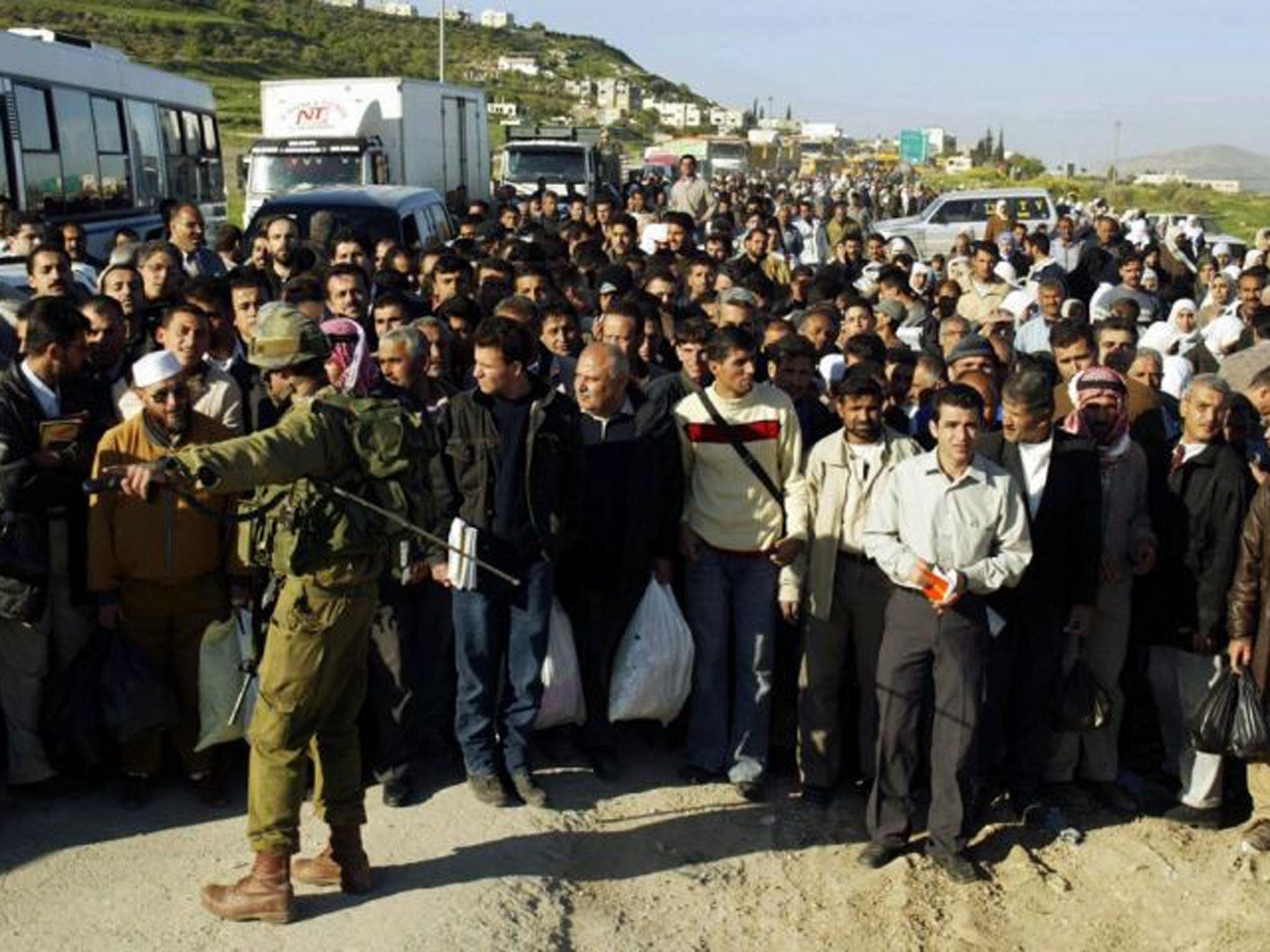Between River and Sea, Encounters in Israel and Palestine by Dervla Murphy, book review
The travel writer's take on Israel and Palestine is flawed but valuable

There are no no-go areas for the wonderfully intrepid Dervla Murphy. In her late seventies, with a "dicey hip" but armed with insatiable curiosity and apparently formidable ability to connect with everyone she meets, she takes buses and tramps through the cities, villages, olive groves and pathless hills of the West Bank over five months in 2009 and 2010.
She stays briefly in Nablus's Al Yasmeen Hotel, but only because she is waiting for her room to be ready in Balata, the teeming and often turbulent refugee camp where she will stay for many weeks and where the notorious alleys are so narrow that her Palestinian host Karim tells her that vitamin D deficiency is a "big problem" because sunlight cannot reach most of its buildings.
From Nablus to Hebron and its surrounding "Area C" hinterland where the Palestinian Authority's writ doesn't run, and impoverished Palestinian shepherds and farmers are in the front line against the permanent encroachments of Jewish settlers, protected by the Israeli military, she records the tales of arrests, injuries and deaths inflicted by the Israeli occupation.
She is at her best when observing the occupation's more casual humiliations at first hand. Queueing at the hated Huwwara checkpoint outside Nablus, she watches as an Israeli woman soldier cuts open with a bayonet the carton two Palestinian youths are carrying and then observes, giggling, as the boys scrabble to recover the contests – biscuits – which have fallen to the ground. The incident is mundane, but lingers in the memory. (Though she doesn't mention this, the Huwwara checkpoint was later downgraded, which casts considerable doubt on whether it had ever really fulfilled the security function Israel claimed for it).
Ms Murphy also spent three months in Israel in the winter of 2008-9, and met a wide cross-section of its residents, from right-wing nationalists – and settlers – to young anti-occupation activists. Proud that, despite her hostility to Israeli policy towards the Palestinians, she has no trace of anti-Semitism, she defines herself as opposed to "political Zionism" which she sometimes abbreviates to Zionism. This is simplistic, since, though impressively well-read, she overlooks the strand of Israeli thought that – however quiescent in the last few years – is at once bitterly hostile to the post-1967 occupation but in the broadest sense still Zionist – ie believing in the right of Israel to exit within legitimate borders; a strand that includes some of the military "refuseniks" she admires. It includes (for example) Yeshayahu Leibowitz, the religious public intellectual who, in the aftermath of the Six-Day War, correctly prophesied (as a Zionist) the corrosive effects on Israel as well as the Palestinians of the occupation and, indeed, coined the incendiary term "Judaeo-Nazis" to describe its perpetrators.
Perhaps this is unsurprising, since Ms Murphy is a convert to the Boycott Divestment and Sanctions campaign and a confirmed believer in the "one state solution". So too are most of the interlocutors – both Israeli and Palestinian – she finds most sympathetic, though, like many "one staters" (her own term), she is less than clear about how their objective of a binational state could be achieved.
But this does not negate the effectiveness of her "worm's-eye view" of the day-to-day miseries of life under occupation. Nor does she shrink, for all her partisanship, from describing the political differences between Palestinians as well as Israelis. Ms Murphy writes that her "amateur psychotherapist friends" believed a travel writer's book might reach readers "uninformed about the Middle East and disinclined to study political tangles". If they're right – and they probably are – that can only be to the good.
Subscribe to Independent Premium to bookmark this article
Want to bookmark your favourite articles and stories to read or reference later? Start your Independent Premium subscription today.

Join our commenting forum
Join thought-provoking conversations, follow other Independent readers and see their replies